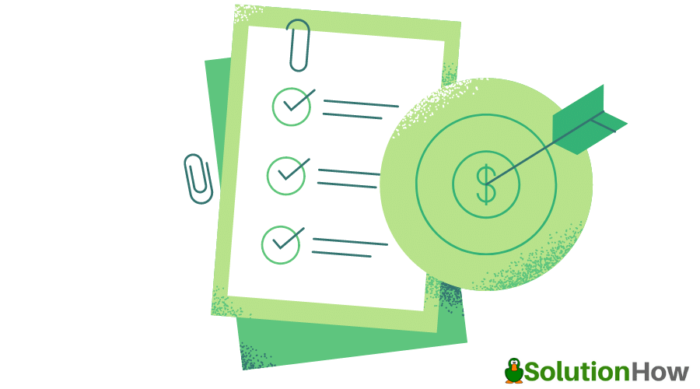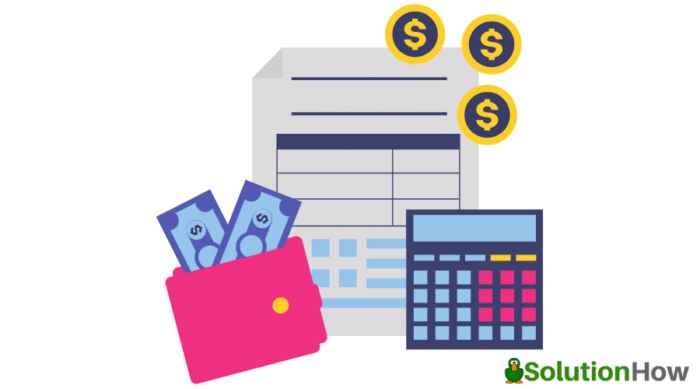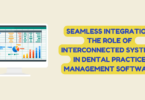
Payroll
If you have learned about pay stubs and how they work, understanding how a payroll software fits into the system is the next step. This guide will talk in detail about what a payroll software is, what features it includes and how you can pick one that fits your business the best. A great payroll software will make the function of your Human Resources department much more streamlined and ready for greater scales.
Without any further delay, let’s dive in.
What Is A Payroll Software?
A payroll software is a system used by the Human Resource department or payroll employees to manage and run the process of payroll operations from start to end. Mentioned below are some of the crucial features of a payroll software, its benefits, and the things a business requires to consider when they want to pick the best payroll software for their operations.
Any Human Resources Management or Payroll expert understands that there are many Automate Payroll Matters to look out. Payroll experts understand that there is more to payroll processing than simply calculating salaries and deductions. Be it enrolling employees into the organization’s payroll system to ensure spotless compliance, or maintaining such payroll records till they leave, there is a long list of redundant functions every month. A payroll software aids the HR professionals to keep a tab on all such actions while automation of repetitive functions, under one platform.
The Importance Of Payroll Software
A payroll processing software entails a large scope of functions to care for an organization’s most important asset – the people who work for it. When it is processed manually, or using an outdated process using a spreadsheet, this becomes unnecessarily complex, time consuming, and can be erroneous. A payroll software helps you to streamline these tasks so that HR employees and business owners can make space for more critical business functions.
- Automation of payroll: Processing employee payroll manually leaves the door open for accidental mistakes that could cost you. A payroll software helps automate both complex and simple functions, enabling a business to run their payroll better. From creating payroll ready compliance to closing out pay periods, an efficient payroll software ensures that the process is organized and efficient.
- Tracks all payroll related expenses: For any company, a payroll is a recurring expenditure. As the business grows, its payroll costs grow too, and the company will need complete transparency regarding one of the biggest factors on their profit & loss statement. A payroll software is able to efficiently generate all such reports and more, which allows you to track salary expenses down to the last fraction.
- Makes tax compliance friendlier: We’ve seen scenarios of businesses being penalized for non-remittance of taxes. Payroll software helps you adapt to changing tax laws, choose statutories that will be applicable for your business, control the PF contributions, and more. Your organization can stay confident of making accurate tax deductions always.
- Integration with relevant third party plug-ins and apps: The payroll professionals are required to coordinate with different levels of management and several teams every month to keep up with record filing. This can become a complex task and when time bound, it can present a challenge to perform. A payroll software that facilitates third party platform and plug-in integration will help run parallel record entries without much manual work, thereby reducing the effort to enter redundant data.
- Securing payroll data: A payroll system consists of sensitive information about the employees private details such as salary, taxes, bank accounts and others. A payroll software can help to enhance the integrity of a company’s payroll data with encrypted access controls. You can give limited access between multiple designations in each department and remove unauthorized access.
Key Features Of A Payroll Software

Payroll Software
- Simplified onboarding: As an HR professional you have a lot of paperwork stacked for day to day functions. The company’s payroll software must enable an HR staff to enroll employees in the payroll system quickly, giving them the complete information of the employee at one place. This can involve basic profile information, salary details, tax, and payment particulars.
- Customized salary components of the employees: The hierarchy of a company can comprise top management executives to interns. An efficient payroll software should allow an HR professional to customize their earnings, allowance, commissions, deductions, reimbursements, and benefit plans according to the policy.
- Single click payroll execution: Once the company HR professionals are set to run the payroll, the payroll software should perform a host of payroll processing functions in one go. This implies that the salary computation becomes automated, taxes get calculated as per the latest tax rules, pay stubs, salaries and the corresponding accounting entries are taken care of automatically.
- Online salary payment: Paying salaries to employees on a timely basis is a compulsion for every organization. A payroll software has active integrations with the most popular banks will help to transfer the salaries safely and on time to all the employees. Some payroll software also allow sending salaries well in advance to a few employees as exceptions from the regular pay cycle, which helps boost dynamic employee relations.
- Managing employee leave and attendance records: Either with the integration to the human resources management system or with the ability to take in spreadsheet inputs pertaining to leave and attendance records, the payroll software enables easy management of the employees’ leave and attendance records promptly by automatically fetching leave data from the HRMS system.
- Tax reports with prescribed formatting: For a business of any scale to have a spotless tax and company law compliance record, it is essential for the payroll software you use to generate reports on all the important statutories (PF, ESI, LWF, PT) automatically to avoid delays and penalties. These tax reports will help the organization perform the tax filing process promptly and before the due date, saving time while organizing such records. If the software facilitates sharing these reports with the company auditors, it’s a plus point.
Benefits Of Integrating To A Payroll Software
- Timely salary payment
- Increased productivity levels of the HRM staff
- Cost saving on a larger scale
- Spotless compliance records and timely filings
Factors To Consider For Choosing A Payroll Software
Choosing an ideal payroll solution is a crucial investment for any business regardless of size. A complex and inefficient system will cost you time and money. Here are some of the most vital factors to look for when you are choosing payroll software.
- Free trial: The payroll software that you pick should let you test the interface and functions with a free trial. Some features may be locked or it could be an open software equipped with all features. You can enter the details of a few employees, create their salary structures, set their schedules and run a test payment process before you finalize your choice.
- Easy to use: The process of learning the go-round of the software should be limited to a minimum for the HR employees, as their expertise is required at several other tasks as well. A clean and compact UI, contextual suggestions for features, and an intuitive user experience makes sure that the employees learn their way to use the software in no time. If they provide a trainer for a day or two’s instructional demo, even better!
- Scalable: When you think of a business payroll software, it requires to be a long-term investment. You cannot keep moving from one vendor to another every year as your requirements or scales magnify. The effort involved to migrate and move data is too time consuming and may cost you heavily depending on the data you possess. The payroll software that you purchase needs to be aligned with the long term sight and growth of the business.
- Accessible: Choose a cloud based payroll software and not a premise based one. A cloud based software solution that enables you to access information from home systems or while travelling with a mobile device and an internet connection is one of the most sustainable and profitable investments. This gives you the ability to access data from any location at any time. Mobile updates of cloud based payroll apps enable employees to follow any announcements made and access their pay stubs even when they’re not in office.
- Secure: Payroll generation activities include having to preserve an employee’s sensitive information such as their personal details, bank account details, salary amount, Aaddhar and personal account number (PAN). Pick a renowned vendor that considers data security their primary feature so you can protect your employee’s information from theft or leaks. The vendor is required to be compliant with the International Security Standards, including the ISO/IEC 27001 security certificate.
- Support: Since your organization is dealing with pay stubs, the support team may be needed to lend a hand when necessary. Speak with the vendor to understand if they have excellent support for their post sales. Check how easy it is to contact them either via email, chat or phone and pick vendors who are renowned for providing great customer support.
How to Choose Payroll Management Software The Suits Your Business Demands
Choosing a payroll software that is the best option for your business is critical for the long term as it is a substantial investment. Here are a few metrics that you can use to gauge if a vendor’s payroll software is good for your business.
- Your budget: The size of your business needs to be taken into account to decide how much money you can afford to spend on a payroll software. Understanding your budget and the capacity of your business’s employee base that will benefit from it will narrow down your choice of payroll software alternatives. Small scale companies that do not expect any sudden or exponential growth can choose to invest in a relatively inexpensive payroll software that maintains the basic payroll functions.
- Vendor reviews and performance: Check up on the quotations of vendors that suit your budget and feature requirements. A great step would be to read reviews of their customers. Large businesses or quickly growing organizations may want to invest in a payroll software that is integrated with other components of employee strategizing and human resources management. Take into consideration how many employees the payroll software you purchase needs to handle and also note potential growth for future increase in employees. If they can cater to your expectations, request them for a demo or trial period and check the usability and functionality of the software. Make sure that the payroll software is rolled out by an industry-wide familiar name and not a new entrant with no reputation or or an unstable vendor.
- Data Security: When you choose a payroll software solution, you will be required to check the security measures it takes to protect your data. Having an encrypted payroll software protects your business from data tampering and potential breaches.
- Software compatibility and flexibility: It is crucial to have payroll software that integrates well with the other business solutions and softwares you own. It also needs to grow along with the business. Explore their integration capacity with third party platforms and ensure that the software is a complement for existing HR or financial software that you’re currently utilizing. Alternatively, you can consider purchasing a software that maintains payroll and all other functions that you want to automate to centralize all processes.
- Report and history visibility: Finally, a payroll processing software that enables retaining control and finding reports along with historical information is of utmost importance. While a payroll solution is less likely to make errors than manual entries, there is still a chance for glitches. It can prove useful to review such information and make any corrections when needed.
Wrapping Up:
Having an efficient payroll software can work wonders within the organization by bringing in more automation and structure. There are fewer chances of human error such as negligence and errors of omissions while there is an entire system dedicated towards keeping track of your employee’s clocked in hours, their salaries due and all the particulars that belong in their pay stubs as additions or deductions. No matter what the scale of your business is, integrating systems with payroll software is beneficial to your current as well as future scenario, where your HR department can focus on utilizing time into developing better strategies rather than manually recording the particulars of a payroll, which becomes impractical on a larger sale. Deskera offers you a highly effective payroll software solution with customizable functions as per your organizational demands. Along with that, you can install accessibility plugin for your software or website. With this plugin you can makes accessibility compliance easy and also helps to reach new audience. Therefore, you need to consult with a seasoned and certified web specialist like “XCompliant”.







You must be logged in to post a comment.